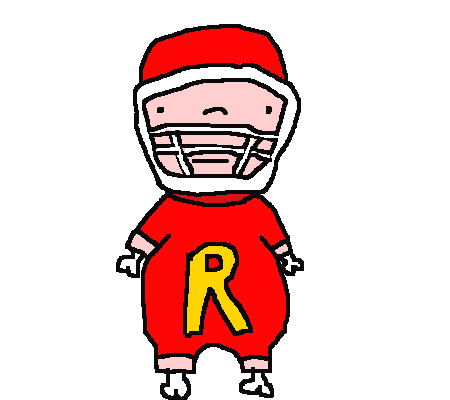
Halfway through the second quarter of what was billed as a fierce game between the NFL’s Baltimore Ravens and Cincinnati Bengals, two teams who are as scrappy and hungry as the cities they represent, the game took a turn for the worse. No, this wasn’t your typical pick six or terrible referee call (though there were a few of those), which, while painful and potentially game-determining, don’t generally have the ability to silence an arena like this. Instead, it was a season-ending injury to Bengals franchise quarterback Joe Burrow that shocked viewers.
The injury happened in the blink of an eye. Burrow was sacked, but got back up. Then, after the next snap, he fell to the turf clutching his wrist. Reporters on the sidelines overheard Burrow telling coaching staff that he felt something ‘pop.’
The verdict? A ligament tear in the wrist of his throwing arm, needing surgery. Burrow was, and is, out for the season. He has been officially placed on Injured Reserve.
While this news is undeniably a blow to the Bengals team, and to Burrow himself, being placed on IR is, for the highest-paid QB in the league, ultimately not the end of the world. The same cannot be said for other players in the NFL – namely, the grunts who aren’t franchise leaders but who nonetheless secure wins and help teams run like well-oiled machines.
Here’s how it works: Some players have fully guaranteed contracts, some players don’t. Fully guaranteed contracts are for the crème de la crème of players, such as Joe Burrow or Jalen Hurts – star QBs and faces of the franchise. Players without that amount of bargaining power are under contract, but usually not fully financially protected in the case of injury or other circumstances.
While on Injured Reserve (IR), players are typically paid less, with these clauses (referred to as ‘split contracts’) often worked into their contracts. For example, Damar Hamlin who famously suffered cardiac arrest on the field last year, had a contractually agreed upon 45% salary cut while on IR. Due to the high-profile nature of Hamlin’s injury, however, the Bills safety is receiving his full salary for the 2023 season, even though he has only played 3 games in the season thus far. It goes without saying that if Hamlin’s injury hadn’t been the topic of national conversation, he likely would have had his pay cut, a potentially disastrous outcome for players who already make less than their franchise teammates.
Put simply, if a player has to come off the field and remain off the field for some time, he will be paid far less than he had initially anticipated. This, in a sport that averages five injuries per game, is undeniably harmful to players.
These exploitative contract practices become all the more sinister considering that Black and African American athletes constitute over 56% of players in the NFL.
While the league has stenciled “End Racism” and “It Takes All Of Us” onto end zones and players’ helmets, it is clear that the call is coming inside of the house. Perhaps, instead of slogans and campaigns uplifting their Black players as signs of American excellence, the league could start their ‘commitment’ to social justice by paying those very players a fair wage. Even better, they could scrap IR pay cuts entirely.
Pay cuts aren’t the only problems athletes in the money-hungry NFL face. The league has updated their play schedule to include 17 games, instead of 16 games which has been the norm since 2000. With 107 NFL time slots, or 350 hours of games, in 2023, the 17 game schedule has given audiences plenty of viewing options but has forced players to endure a shorter recovery time. This, in turn, leads to horrific scenarios like the one on our screens during the fateful Thursday game against the Ravens.
Our more skeptical readers (of whom I have the great pleasure to hear from) might object to this consideration of players’ exploitation. Whitman is, after all, not a college known for its football team from ‘way back when.’ However, I would challenge the more sports-skeptical of us to understand that the fight against player exploitation is also fundamentally the fight against worker exploitation. To watch a sport like football is to watch exploited athletes hit each other again and again — each hit more damaging than the last. Is this really all that different from the exploitations we suffer in our own lives? Must we locate our fraught sense of superiority in the fact that we are somehow different by not watching this exploitation?
You don’t have to be a fan to see that IR pay cuts and increased time slots are wrong. And, if you are a fan, you have the duty to point out these modes of exploitation, and to advocate for the people who suffer the most from it.


Gern • Dec 12, 2023 at 12:46 am
There’s no satisfying the grievance studies crowd.
Underrepresented, overrepresented; underpaid, overpaid; please make the utopia which only exists in my head, and which changes upon my every whim !